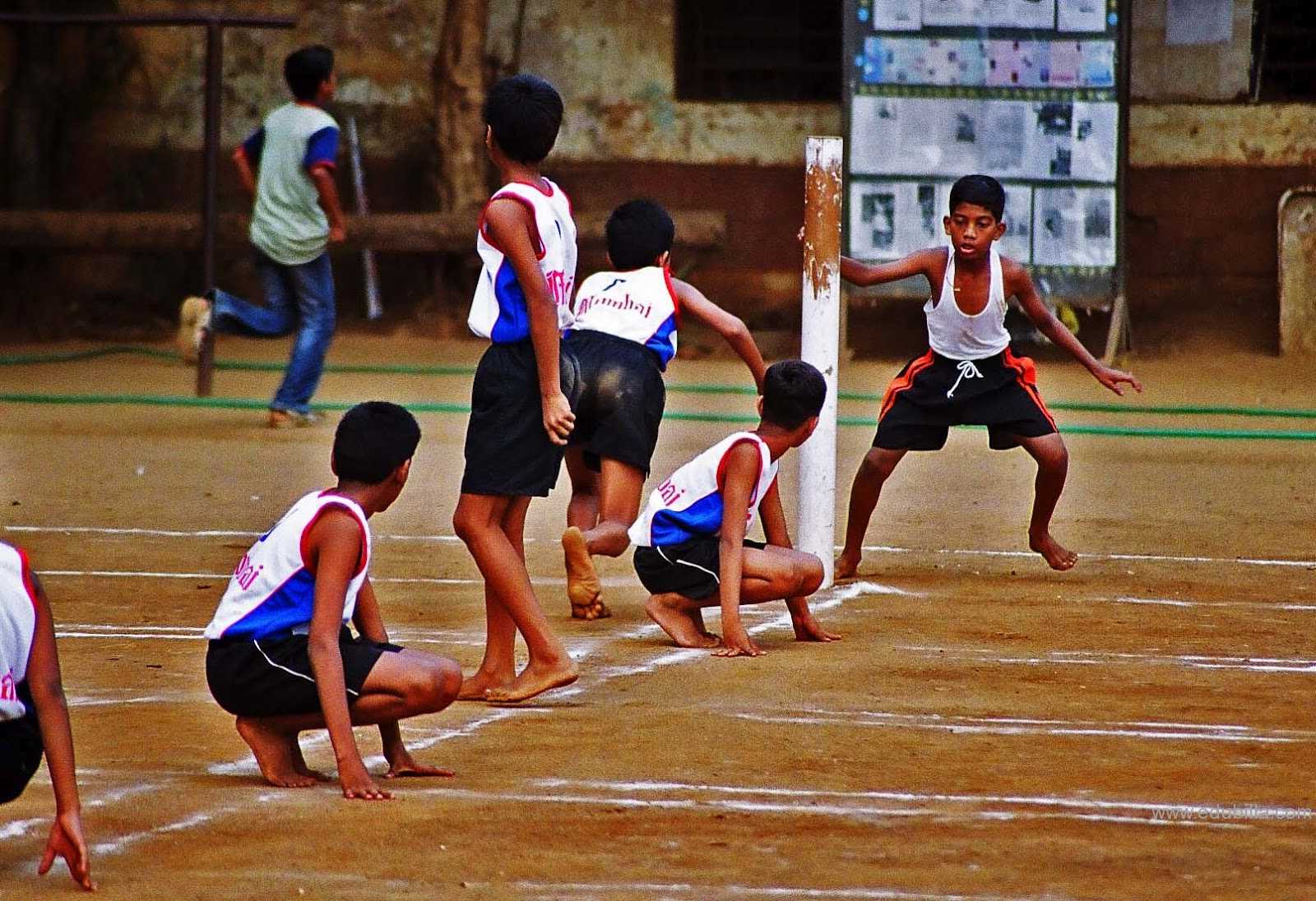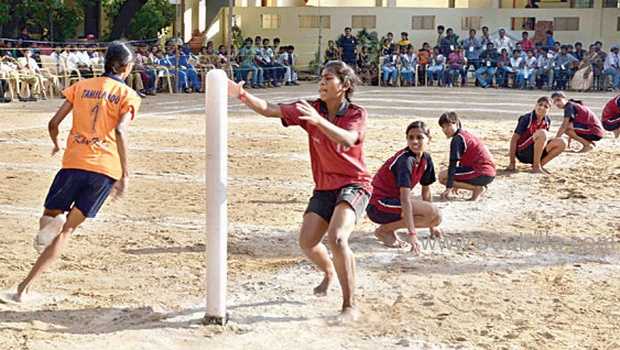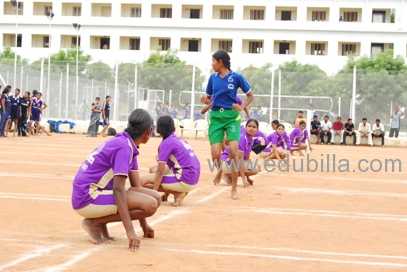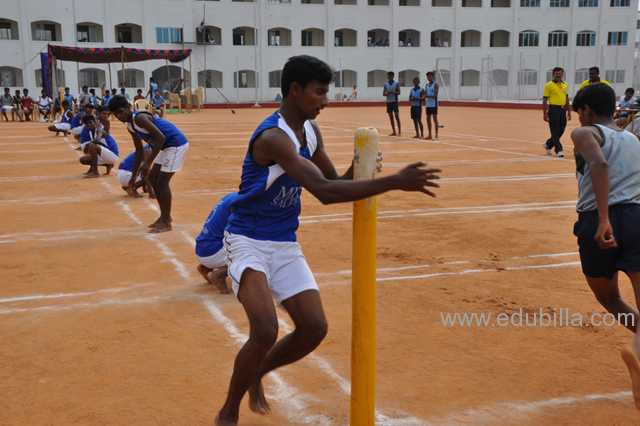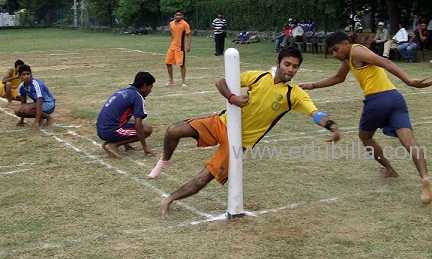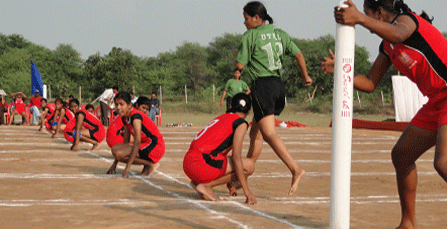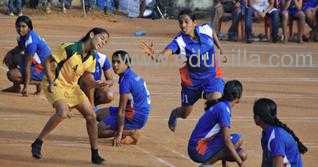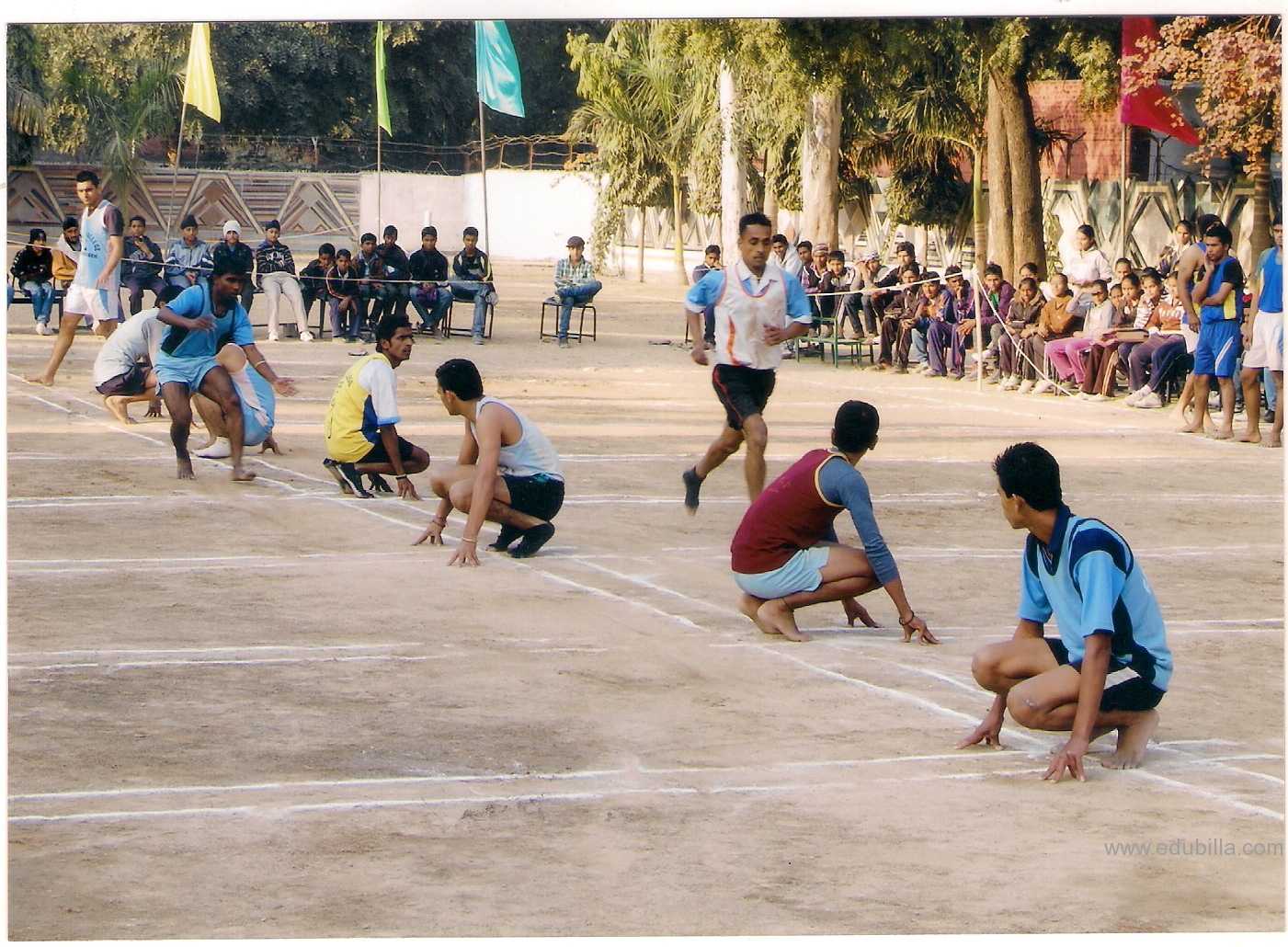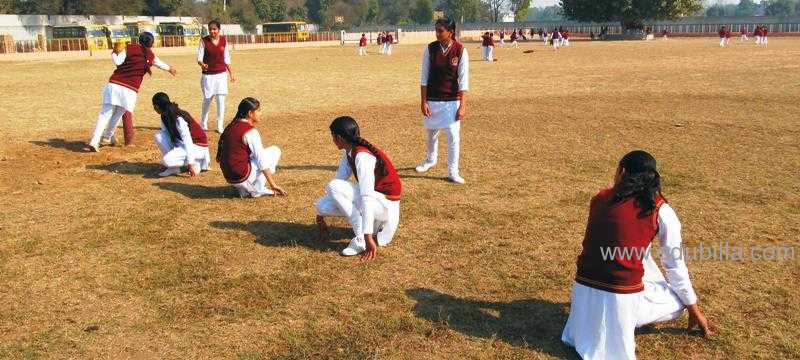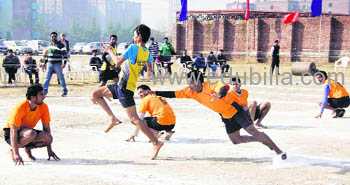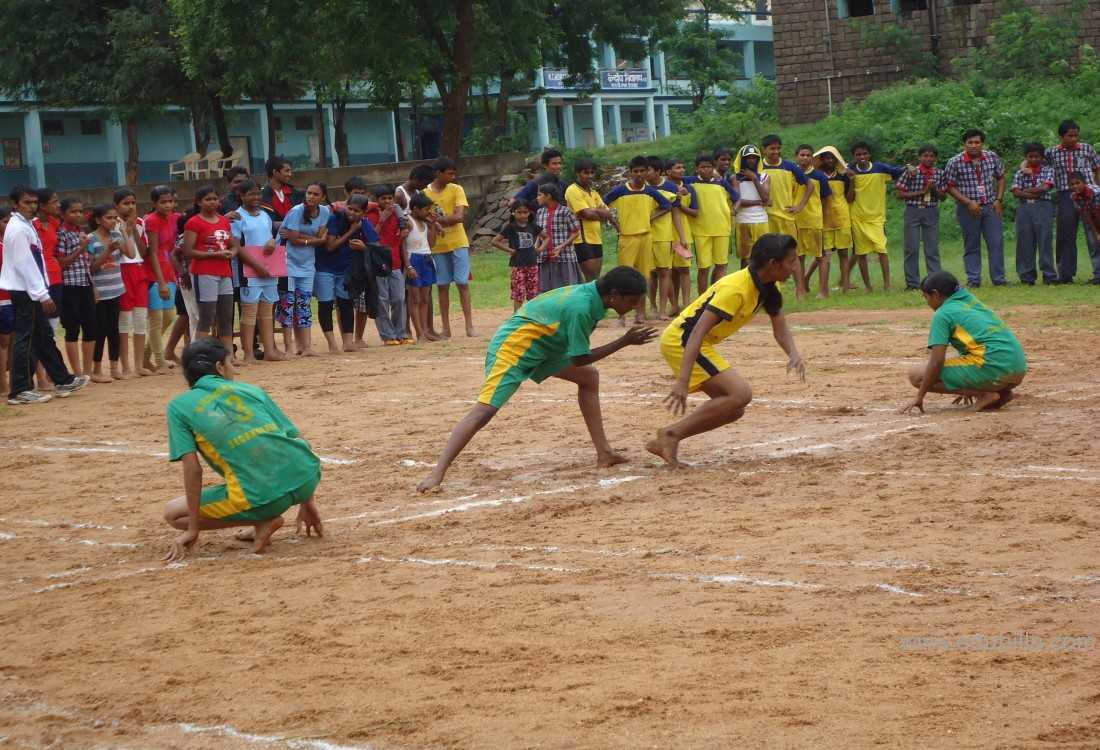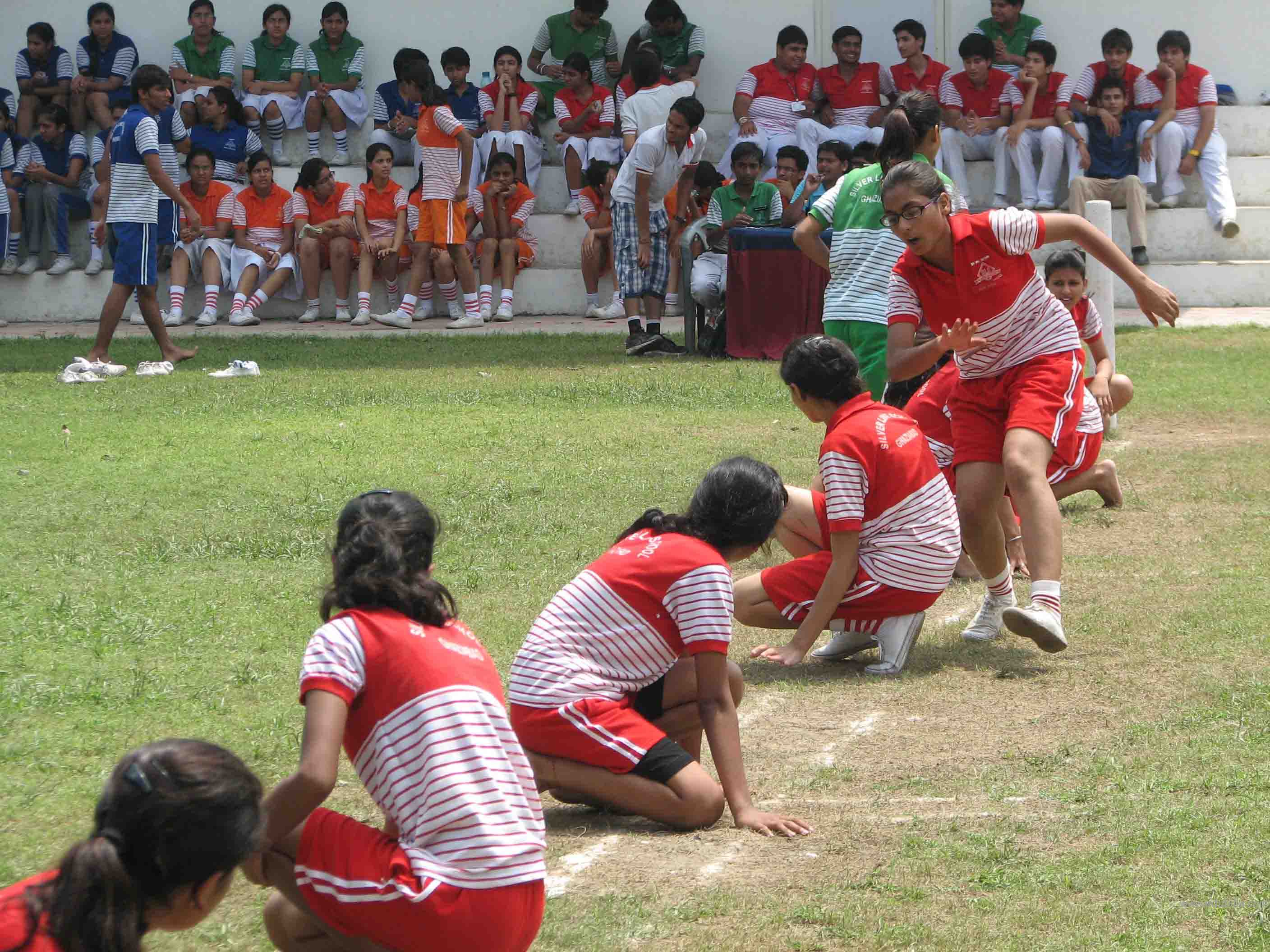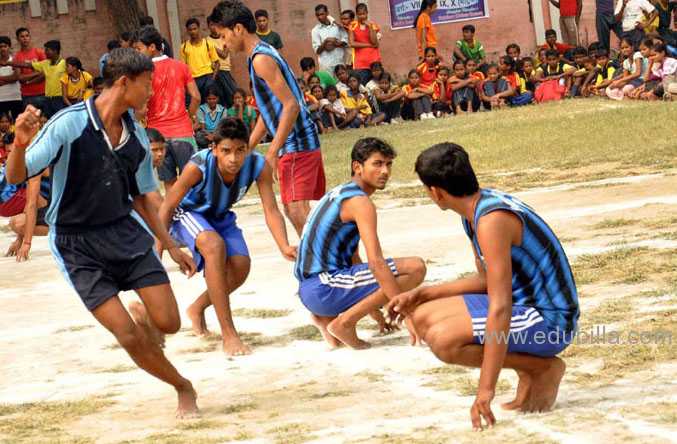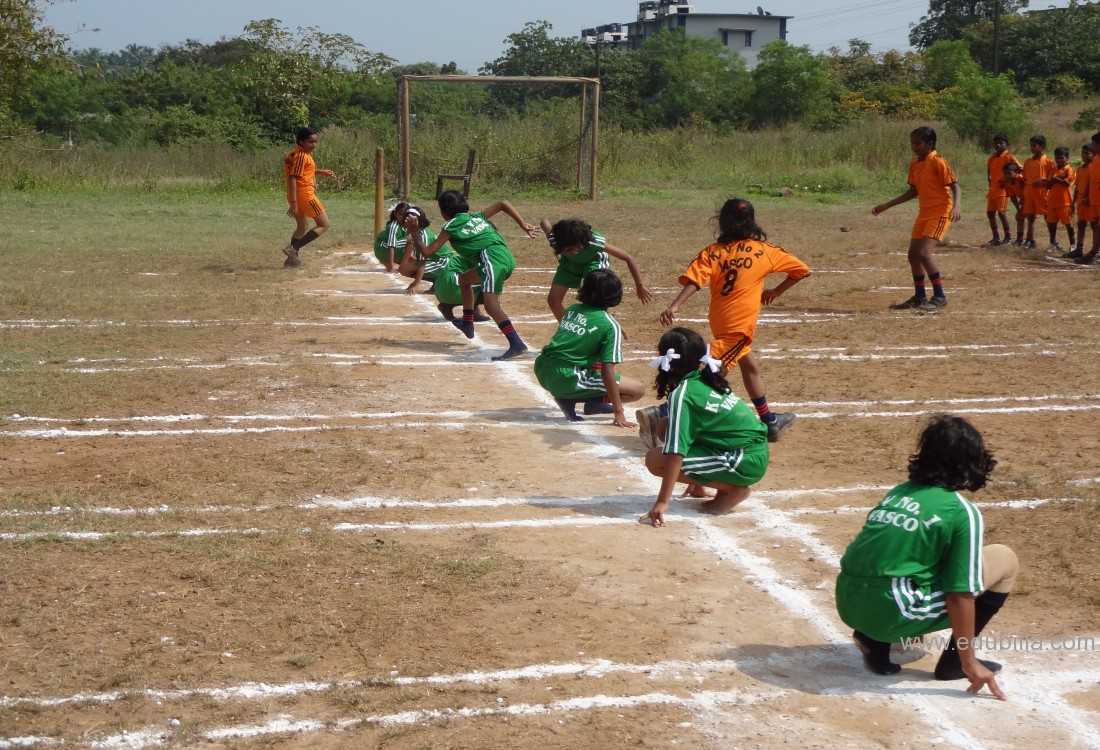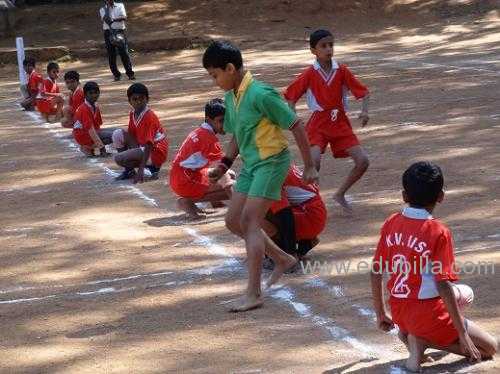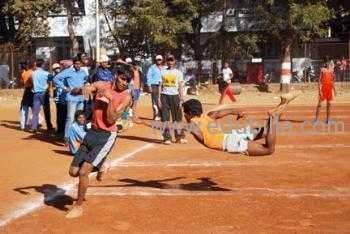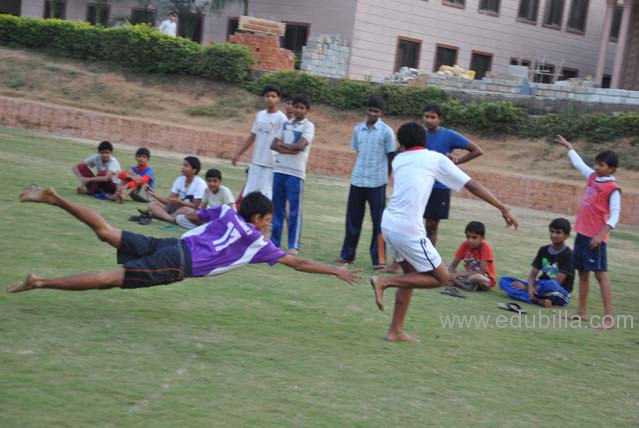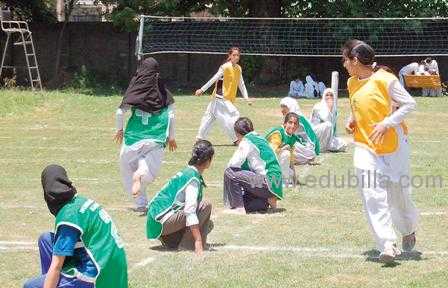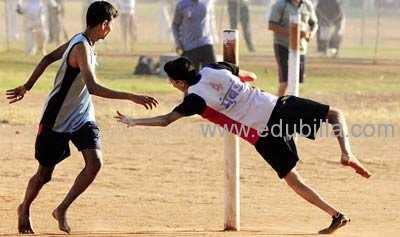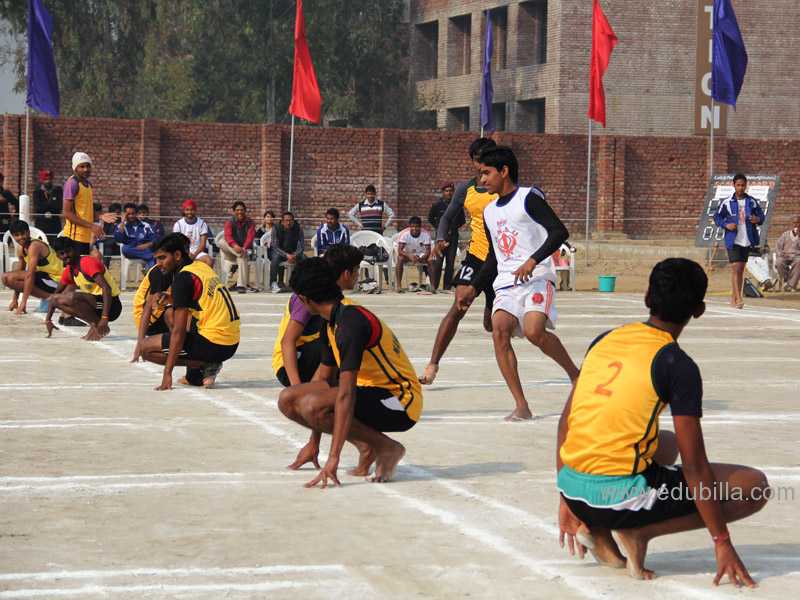
Overview Of Kho kho
Kho kho is a tag sport played by teams of twelve players, of which nine enter the field, who try to avoid being touched by members of the opposing team. It is one of the two most popular traditional tag games of the Indian subcontinent, the other being kabbadi.Apart from the Subcontinent, it is also played in South Africa.
Game Rules
1. Now, the length and breadth of kho-kho court is 29 m x 16 m.
2. Pole to pole distance is 23.50 m.
3. Each team plays for 9 minutes instead of 7x1/2 minutes.
4. A runner shall not touch any sitting chaser.If he does so, he will be given a caution. But if he does it again, he will be declared out.
5. If three runners are made out, consecutively by an active chaser, he cannot touch the forth runner; he will have to kho to any sitting chaser.
6. Sitting chaser are not allowed to create any obstruction in the way of runners.If any runner is touched by an active chaser due to such obstruction, the runner will not be considered out.
7. A team consists of 12 players out of which 9 players team and the remaining 3 players act as substitutes or extra players.
8. A toss of coin should decide the right to choose chasing or defending.
9. The captain may end their turn before allowed time.
10. When the turn starts, a chaser should not leave the square without getting a 'kho'.
11. The tea, which scores more wins a match.
12. Once all the runner are out before time.they send their runners again in the same order.
13. A 'kho' by a chaser should be given from behind a sitting chaser loudly.
14. After giving Kho, an active chaser should sit immediately on the vacanted square.
15. A defender is declared out, if he is touched by hand by an active chaser without breaking any rule.
Equipments Need For Kho kho
The list of equipment used in kho kho game:
- Two Posts for one Ground
- Steel Strings/Ropes
- Measuring Tape (Steel) in mtr./cms
- Marking Powder (Lime Powder) and materials required for Ground marking
- Stop Watches (Two on each Ground) calibrated in Seconds
- Two Rings having inner diameter of 9 cms. and 10 cms
- Time indicating Board/Placards 1-8 (To indicate time elapsed in a turn), measuring 20 cms. in length and 4 cms. in width.
History Of Kho kho
Asian Kho Kho Federation was established in the year 1987 during 3rd SAF Games, held at Kolkata, India. The member countries were India, Bangladesh, Pakistan, Sri Lanka, Nepal and Maldives. The first Asian championship was held at Kolkata in 1996 and the second championship at Dhaka in Bangladesh. India, Sri Lanka, Pakistan, Nepal, Japan, Thailand and Bangladesh were participants of the championship.when the first game was played, though many historians say that it is actually a modified form of `Run Chase`. In the ancient era, a version of the Kho-Kho game was played on `raths` or chariots in Maharashtra. This was known as Rathera. In ancient Kho-Kho history, there were no rigid rules and regulations for playing the game. The Kho-Kho rules were first framed in the early 1900s. A committee was formed at Gymkhana Poona in 1914 for framing the Kho-Kho rules and the first ever book of Kho-Kho rules was published from Gymkhana Baroda, in 1924.
Berlin Olympics:
In the year 1936, during the event of BERLIN OLYMPICS, one Kho Kho Team from Pune exhibited the salient features of the game of KhoKho at Berlin. Which was highly appreciated by Hitler.
First Kho-Kho Book:
In ancient Kho Kho history, there were no rigid rules and regulations for playing the game. The Kho Kho rules were first framed in the early 1900's. A committee was formed at Gymkhana Poona in 1914 for framing the Kho Kho rules and the first ever book of Kho-Kho rules was published from Gymkhana Baroda, in 1924.
First Professional Team:
The year 1998 saw the first ever International Championship organized in the Indian cityof Kolkata. Sponsors, who come from different fields, have also been associated with the game, and Bank of Maharashtra has developed their first ever team of Professional players
Origin Of Kho kho
Kho-Kho ranks as one of the most popular traditional sports in India. The origin of Kho-Kho is difficult to trace, but many historians believe, that it is a modified form of 'Run Chase', which in its simplest form involves chasing and touching a person. With its origins in Maharashtra, Kho-Kho in ancient times, was played on 'raths' or chariots, and was known as Rathera.
Kurukshetra war :
KHO KHO , ancient game of undivide INDIA, probably was derived from the different strategy and tactics of "Kurukshetra" war in Mahabharta. The chariot fight during the war and zigzag pathways followed by the retreating soldiers indicates the formation of Chain Play -Defense Skill in the game of KHO KHO. On the 11th day of the war, the Chief of Kaurav Army, Guru Dronacharya drew a typical strategic formation- CHAKRAVYUH(Circular formation) keeping Jayadratha at the main entrance with seven soldiers to draw in and kill the enemy. Veer Abhimanyu, the son of Arjuna, entered into the trap but could not get his way out and in the process got killed. He fought gallantly alone against seven soldiers. The method adopted by Abhimanyu resembles the idea of “Ring Play” – a Defense tactics in Kho Kho game.
First Ever Rules:
The rules of the game were framed in the beginning of the 20th century. At Gymkhana Poona, a Committee was formed in 1914, to frame its rules. The first ever rules on Kho-Kho were published from Gymkhana Baroda, in 1924.
First National Kho-Kho Championship:
In 1960 A.D. Kho- Kho Federation of india was formed. In this year, the first National Championship (Men) was organised. In 1961 A.D Kho-Kho championship for women was started. A demonstartion of Kho-Kho match was presented in Asian Games, 1982 which were held in New Delhi.
Governing Bodies
Kho Kho Federation of India:
The primary sports body for Kho Kho game is called the Kho-Kho Federation of India (K.K.F.I.)
Asian Kho Kho Federation (A.K.K.F.):
Asian Kho Kho Federation (A.K.K.F.) was established in the year 1987 during 3rd SAF Games, held at Kolkota, India. The member country was India, Bangladesh, Pakistan, Sri Lanka, Nepal and Maldives.
1st Asian KhoKho Championship:
Kho Kho made its entry into INTERNATIONAL SPORTS Arena via 1st ASIAN KHOKHO CHAMPIONSHIP held at Kolkata, India in 1996, organized by West Bengal KhoKho Association under the auspices of KhoKho Federation of India and SIAN KhoKho Federation on “Tera Flex” Court at Netaji Subhash Indoor Stadium, Kolkota, West Bengal, India in a most beautiful manner. India and Bangladesh were Winner and Runnerup respectively. The participants were Bangladesh, Pakistan, Sri Lanka, Nepal and host India.
2nd Asian KhoKho Championship:
2nd Asian KhoKho Championship was held in Bangladesh in the year 2000 at Mirapur Indoor Stadium, Dhaka, Bangladesh has strengthened the approach of the game KhoKho in the International Arena. India, Sri Lanka, Pakistan, Nepal, Japan, Thailand and host Bangladesh were participants of the Championship.
Awards Related To Kho kho
Arjuna Award:
The Arjuna Awards are given by the Ministry of Youth Affairs and Sports, government of India to recognize outstanding achievement in National sports. Instituted in 1961, the award carries a cash prize of 500,000, a bronze statue of Arjuna and a scroll.
Eklavya Award for men:
Ekalavya Award is awarded by Government of Karnataka for the outstanding performance in sports.
Rani Laxmi Bai award for women:
Rani Lakshmi Bai Award: named after Rani Lakshmi Bai, the Queen of Jhansi,The award will carry a cash prize of Rs.1 lakh and a citation. The awards will be given to women who have triumphed over difficult circumstances and have fought for and established the rights of women in various fields.
Veer Abhimanyu award:
The Indian government has initiated Veer Abhimanyu Award for boys under 18.
Janaki award:
The Indian government has initiated Veer Abhimanyu Award for girls under 16.
Sample Documents Of Kho kho
-Pele

